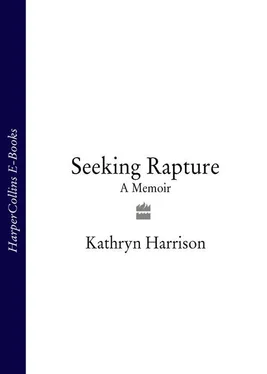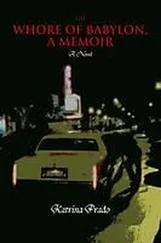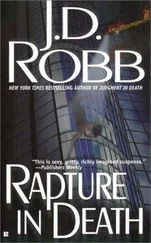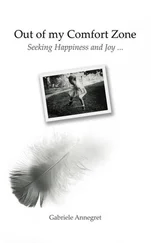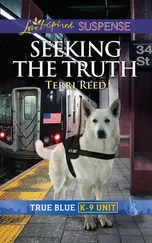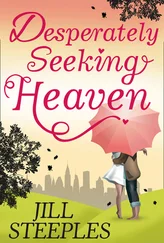For many months, the red cowboy boots have been missing from among the puzzle girl’s accessories. One morning, I find the piece lodged under a baseboard in our room and feel a tiny leap of joy: the redemption of recovery. I go to put the piece away, so eager to press it into the empty boot-shaped space that as I cross the threshold from our room to the children’s I almost miss what I am walking over. At my feet is a life-size version of the puzzle I am hoping to complete.
At five, our daughter is just beginning to understand herself as a creature of infinite possibility. We, her parents, each year let go of things we will likely never do, another trip we may not make, another sport we’re too old to take up. But Sarah is just learning of her choices, all of which she relishes, lingers over. She asks to be wakened early enough to consider every option of what to wear to school, and on the floor of the room she lays out possible outfits: shoes, tights, dresses, pants, shirts, socks. She does it for herself and for her little brother, and, after they are dressed in the outfits they have picked, and are gone, the rejected clothes remain.
The room I see is this: their sleeping selves are laid out, pajamas on his bed, nightgown on hers. Among table legs, train tracks, and Barbie gear, his blue trousers and race-car shirt pose solemnly. The shirt’s long sleeve reaches toward that of his sister’s pink pullover, carefully tucked into the waist of a black skirt decorated all over with pink flowers. A second-choice skirt – she prefers the longer, purple one – it floats above the legs of red tights, legs splayed crazily as if in flight from this room, as if to remind us, and the attentive boy evoked by the posture of those empty dark blue trousers, that she is leaping forward into life. Soon she will not live in the bedroom next to ours. Soon she and her brother will have separate rooms, later separate homes and separate lives. This room will, perhaps, become the library we once planned, the chaise re-covered in a sober leather or corduroy.
But for now the children are here, in this room next to ours, his bed only nine steps from the one in which we sleep, hers fourteen. I measure these steps, walk them like a prayer. How mysterious to have arrived in this place, this family, a child who never played house, who never held a doll, who never, not once, imagined herself a mother. How did it happen? From the shelf the puzzle girl returns my stare, her closet complete, her serenely smiling face as enigmatic – as exotic and unexpected – as a totem’s.
Long after my friends and schoolmates had outgrown Santa Claus, I still believed in him. It was a secret, potentially embarrassing faith, one encouraged by my grandparents who beieved that, in other ways, I’d been forced to grow up too quickly. My parents’ marriage ended when I was six months old, in 1961, in a community where divorce was still more scandal than commonplace. My mother’s mother and father raised me in the house where she herself had been raised and where she lived until I was six. As I grew up, I saw my father only twice, and my mother’s leaving was something I precipitated, unwittingly, one Christmas morning.
I’d woken up too early. Hours before dawn, I crept down the hall to the fireplace to see if my stocking had been filled. Outside, the winter sky was still black; wind rattled the windows in their frames. The stocking was heavy, stuffed with promise. Having touched it, I found I couldn’t let go, and I lifted it from the nail and carried it to my mother’s bedroom, next door to my own. Her room was utterly quiet; there was no sound of her breathing. Her bed, when I felt it, was cool, flat, empty.
Filled with dread – where could she be in the dark, wide night? – I went to my grandparents and woke them up.
‘Mommy’s not here,’ I said. ‘Mommy’s gone.’
As soon as my grandmother turned on the light, as soon as I saw her face, I knew that I had made a mistake. I hadn’t saved my mother from whatever I was afraid might have befallen her. Instead, I had betrayed her.
She returned at seven, slipping through the kitchen door, her white Christmas Eve dress looking rumpled and dingy in the gray light of morning. The ensuing fight was spectacular, even for old enemies like my mother and grandmother. Loud enough to be heard through two sets of closed doors, it featured words I didn’t know, words that rang with complex menace. Assignation. Promiscuity.
Each Christmas Eve, after I was asleep, my grandfather would take off his shoes and dip them in the ashes left from the fire. He carefully made footprints that led from the hearth across the beige carpet to the tree and back, then wiped the soles clean. He ate the cookies I’d set out on Santa’s plate, shook crumbs on the tabletop, crumpled the napkin, drank the cold cocoa. In the morning, I noted all these signs and believed in them.
My stocking brimmed with gifts wrapped meticulously in marbled Florentine paper tied with narrow ribbons. I opened them slowly, with unnatural, unchildlike care. Inside were tiny carved bears, sets of colored pencils too small to sharpen, books the size of postage stamps. Always, the guiding aesthetic was of a life made as small as possible: an electric lamp complete with three-volt bulbs the size of apple seeds. It didn’t matter that I had no dollhouse to plug it into. I didn’t want, ever, to test it.
Adults find it difficult to reconcile the simultaneous knowing and unknowing that is inherent in faith. Children rarely try. I had many opportunities, even invitations, to conclude that it was my mother who filled my stocking. And I was old enough to have heard for years the playground challenge: You don’t believe in Santa, do you? Well, no, I didn’t, and yes, I did. What I believed in was some thing I identified as Santa Claus, having no more sophisticated language to articulate what I now understand as a longing for the ideal home. To me, this platonic space was so far away that it appeared as small as a dollhouse, but it was the place where my mother and I would someday live: a home too small and controlled to contain quarrels or tears.
The Christmas I was nine, my dark-haired, white-skinned mother went to Jamaica with a man I didn’t know and came home on New Year’s Day, her hair streaked blond, her white skin brown and peeling. In her absence, for which she tried to apologize with brightly painted maracas and pink shell bracelets, my grandmother had filled my stocking. On Christmas morning I saw right away that something was wrong. It was too lumpy, the things it contained too big: hair bands and candy, perfume, a matching pen and pencil set – nothing I wanted.
‘How was Christmas?’ my mother asked, sitting on the couch, scratching her sunburned arms. ‘What did Santa bring you?’
‘ Who? ’ I said disdainfully. ‘ Santa? Why would I believe in something as stupid as Santa?’
The surprise and hurt on her face and on my grandmother’s was what I wanted, and yet I felt their quick intake of breath as if it were my own. I felt the air leave the room as if I’d struck the house itself, punishing it for being what it was, outsized and filled with mistakes lit by the glare of hundred-watt bulbs.
Now I live in the big city of New York, and my children are subjected each holiday season to a barrage of Santas – Santas ringing bells and asking for money, Santas sitting in department stores and posing for pictures, Santas doing the cancan in sync with the Rockettes. At five and seven, already they exchanged knowing looks with each other, having, I think, decided to spare me the truth.
So much of the holiday ritual – exhausting, essential – is about creating perfect moments, picturesque gatherings that cannot be sustained longer than a night, if that long. Years after the deaths of my mother and grandparents, I’m the stocking stuffer of the family, the one who travels hours to a store that sells small-scale horses with real horsehair manes and tails. I keep a bag hidden in a closet in my study and fill it with things I know my children will love. As early as June I am gathering little toys, things I won’t allow myself to give them until the occasion – Christmas – presents the excuse I need. I can’t face their father’s accusations: You spoil them. You buy them too much.
Читать дальше
